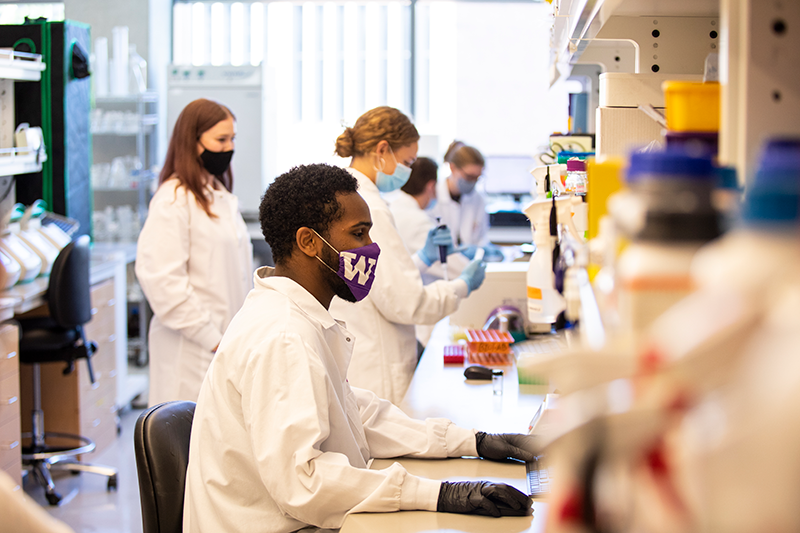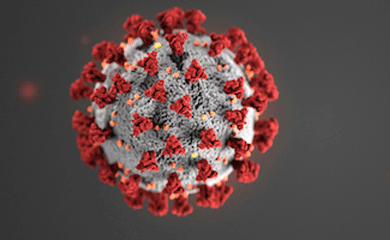
The UW's Biofabrication Center, a unique facility dedicated to enabling the rapid design, construction and testing of genetically reprogrammed organisms, is partnering with Agilent Technologies in pursuit of automated, reproducible research.

In response to the COVID-19 pandemic, MolES faculty have pivoted their research to address the novel coronavirus, SARS-CoV-2. They are leveraging molecular engineering approaches and tools to develop improved diagnostics, targeted treatment strategies, and a better understanding of the virus. We highlight a few of these projects here.
Two faculty members of the Molecular Engineering & Sciences Institute have received Innovation Awards, recently announced by the Office of the President. The awards honor mid-career researchers who are engaged in the medical, natural, social and engineering sciences. They also recognize faculty who foster new creative ways to foster student learning and active engagement. Among the inaugural year recipients are two MolES faculty members, James Carothers and Eric Klavins.
 James Carothers, assistant professor of chemical engineering, will create new approaches to produce renewable chemicals. Read More
James Carothers, assistant professor of chemical engineering, will create new approaches to produce renewable chemicals. Read More
From UW Today: UW engineers invent programming language to build synthetic DNA
Similar to using Python or Java to write code for a computer, chemists soon could be able to use a structured set of instructions to "program" how DNA molecules interact in a test tube or cell.
A team led by the University of Washington has developed a programming language for chemistry that it hopes will streamline efforts to design a network that can guide the behavior of chemical-reaction mixtures in the same way that embedded electronic controllers guide cars, robots and other devices. Read More


MolES faculty Georg Seelig (Electrical Engineering, Computer Science and Engineering) and Eric Klavins (Electrical Engineering) were awarded $2 million as part of a multi-investigator team investigating "Molecular Programming Architectures, Abstractions, Algorithms and Applications" as part of the National Science Foundation’s Expeditions in Computing program. The team, led by by Professor Erik Winfree of the California Institute of Technology, also includes investigators from Harvard University and the University of California at San Francisco. The project explores how to systematically program the behaviors of a wide array of complex information-based molecular systems, from decision-making circuitry and molecular-scale manufacturing to biomedical diagnosis and smart therapeutics in living cells. Read More